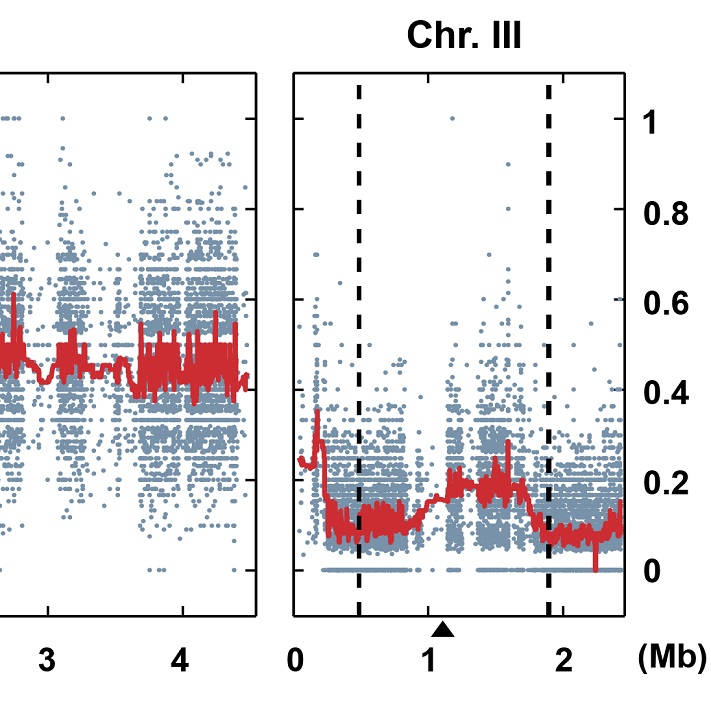Research News
Dr. Li-Lin Du’s laboratory discovered fission yeast selfish genes that break Mendel’s law
On June 20, 2017, Dr. Li-Lin Du's laboratory published in eLife a paper titled "A large gene family in fission yeast encodes spore killers that subvert Mendel’s law". Through studying the intraspecific reproductive isolation phenomenon in the fission yeast Schizosaccharomyces pombe, the authors discovered that members of a previously uncharacterized fission yeast gene family are selfish genes that break Mendel’s law.

Mendel’s law of equal segregation stipulates that two alleles of a gene should have an equal chance of being transmitted to progenies. Some selfish genes break Mendel’s law by killing gametes that do not inherit them, thereby skewing transmission ratios to their advantage. This type of selfish gene is called gamete killer, and is also called spore killer in fungi. Few gamete killers have been identified, and even fewer have been characterized at the molecular level.
The authors found that when a fission yeast natural isolate strain CBS5557 and the laboratory strain were crossed, spores derived from the cross suffer poor viability. Such an intraspecific reproductive isolation phenomenon has also been observed previously in crosses between other independently isolated fission yeast strains. Through next-generation sequencing-assisted bulk segregant analysis, the authors found that among the viable progenies from the cross between CBS5557 and the laboratory strain, the laboratory strain alleles were severely under-represented in two genomic regions, suggesting the presence of spore killers in these regions in the CBS5557 genome. Further genomic and genetic analyses demonstrated that two members of the wtf gene family locating in these regions, cw9 and cw27, are spore killers. These two killers act in strain-background-independent and genome-location-independent manners to perturb the maturation of spores not inheriting them. Spores carrying one killer are protected from its killing effect but not that of the other killer. The killing and protecting activities can be uncoupled by mutation. Using third-generation sequencing technology, the authors found that there are 32 wtf genes in the CBS5557 genome and they differ considerably from wtf genes in the laboratory strain genome. The authors propose that the rapid divergence of wtf genes contributes to the extensive intraspecific reproductive isolation in S. pombe. This work shed new lights on the roles of selfish genes in genome evolution and speciation.
Dr. Wen Hu from Dr. Li-Lin Du’s lab is the first author of this paper. Other contributors include Fang Suo and Jin-Xin Zheng from Dr. Li-Lin Du’s lab, Zhao-Di Jiang and Dr. Wan-Zhong He from Dr. Wan-Zhong He’s lab. Dr. Li-Lin Du is the corresponding author. This project was supported by the Chinese Ministry of Science and Technology and the Beijing municipal government.
Web address of the paper:https://elifesciences.org/articles/26057



